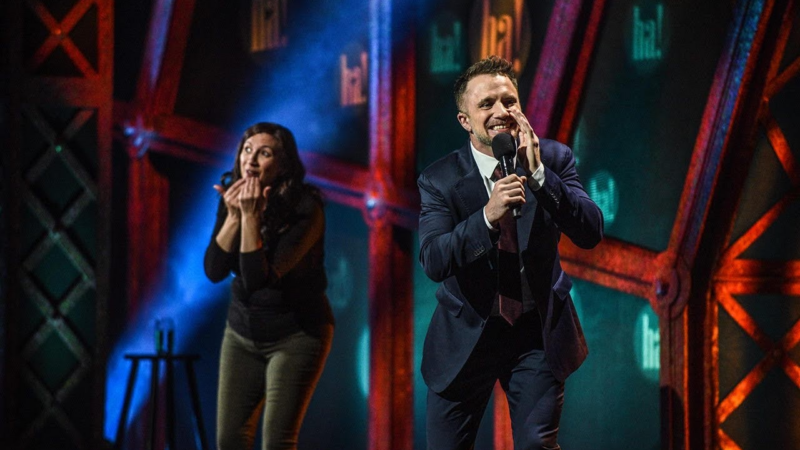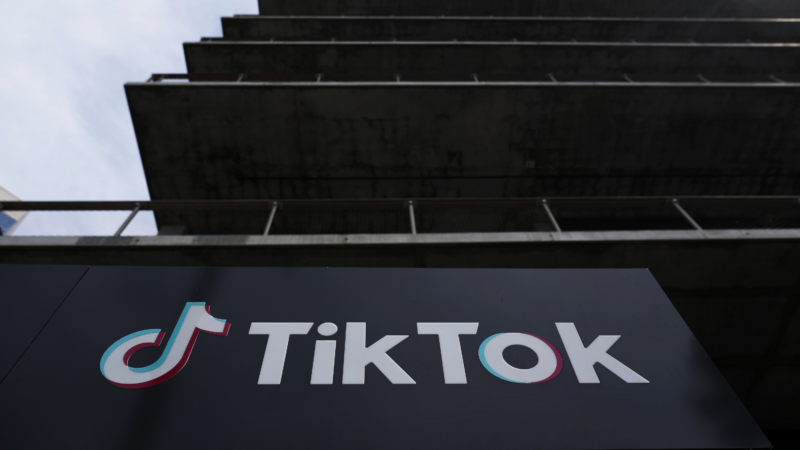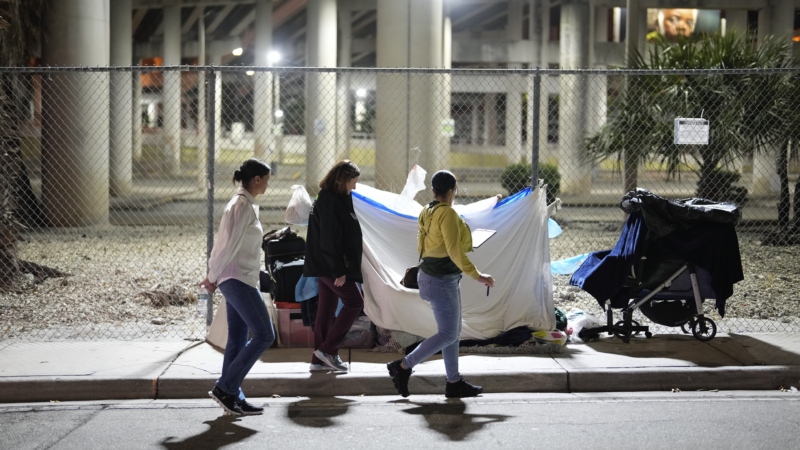Comic D.J. Demers jokes a lot about hearing loss — but won’t be ‘the hearing aid guy’
Being hard of hearing is a source of a lot of material for stand-up comedian D.J. Demers. Without his hearing aids, he’s considered deaf. When he takes them out to sleep at sketchy hotels, he says, “I’m very easy to murder.”
And since hearing aids aren’t waterproof, “pool parties are a nightmare,” he jokes. “I’m not very good at Marco Polo.”
As a new dad, people warned him to be ready for a lot of sleepless nights. “It’s been pretty chill. I’d love to help more, but this damn disability, you know?”
Nothing to joke about at first
Demers was diagnosed with hearing loss when he was 4 years old. As a kid, he saw nothing funny about it.
“I never joked about my hearing aids when I was young. I actually kind of hid them,” he says. “If I had to change them at recess or something, I would kind of run away from everybody and do it in a private corner.”
Then Demers learned that making people laugh was a way to make friends and deflect potential ridicule.
“If they had any feelings that they didn’t want to be friends with me because I had a disability, I could overcome that because I was funny,” he says.
He’s so funny, the Canadian-born Demers won the “Homegrown Comics” competition at the prestigious Just For Laughs Festival in Montreal in 2014. That led to spots on Conan, The Tonight Show Starring Jimmy Fallon and America’s Got Talent. He developed and starred in a sitcom for CBC Television and filmed four specials. His latest, Azoospermia, is about his and his wife’s journey conceiving a child.
Sign language interpreters in his stand-up
After about five years doing stand-up for hearing audiences, Demers realized having a sign language interpreter on stage would help him reach others in the deaf community. The first interpreter he hired was Jennifer Lees.
“I’ve seen concerts with interpreters for music and I’ve seen lots of spoken word stuff,” says Lees. “But comedy, definitely, there was a gap there for deaf and hard of hearing consumers who just want to be able to go out to Yuk Yuks or one of the [other] comedy chains and have some fun.”
Lees, who’s interpreted for Demers many times, says deaf and hard-of-hearing audiences can relate to his material, like his jokes about not being able to lip read during the pandemic.
“Nobody’s ever talked about [hearing loss] in a funny way,” says Lees. “You know, people very rarely talk about it at all, never mind with an incredible insight into how awkward and strange communication can be.”
Not just ‘the hearing aid guy’
From the beginning of his stand-up career, Demers says, he was reluctant to make too much of his act about his disability. “But there’s so much stuff to talk about and a lot of funny stuff and it is a unique perspective.”
And that perspective has changed over time.
“I have a kid now and now he’s got a hard of hearing father. So I’m watching how he perceives me when I can’t hear him well. And so that’s shifting my own perspective on my disability,” he says.

Still, Demers doesn’t want to be pigeonholed as “the hearing aid guy.” In fact, much of his material has nothing to do with disability at all. He’s joked about social media, his passion for speed walking and being tested for infertility.
Yet with the explosion of stand-up in recent years, some comedians feel pressure to find their niche and stick to it.
“If I really leaned into being ‘the hearing aid guy,’ I could capture that market,” Demers says. “But at what cost? I have to explore more beyond it, just to be artistically fulfilled.”
Demers will make his second appearance on The Tonight Show this week (scheduled for Nov. 26) and then he will go on to tour the United States.
Jennifer Vanasco edited this story for broadcast and digital. Chloee Weiner mixed the audio.
Trump asks the Supreme Court to delay the start of the TikTok ban
President-elect Donald Trump asked the Supreme Court on Friday to pause the potential TikTok ban from going into effect until his administration can pursue a "political resolution" to the issue.
U.S. homelessness jumps to another record high, amid affordable housing shortage
The annual federal count finds more than 770,000 people living in shelters or outside. It cites rising rents and the recent surge in migrants as key factors behind the increase.
Sportscaster Greg Gumbel dies at age 78
Greg Gumbel, a longtime CBS sportscaster, has died from cancer, according to a statement from family released by CBS on Friday. He was 78.
Costco egg recall for salmonella receives FDA’s most severe designation
The FDA has classified its recall of eggs sold under Costco's Kirkland brand as a Class I recall, a designation reserved for instances of the highest potential health risk — including death.
Syria’s U.S.-backed Kurdish coalition faces an uncertain future after Assad’s ouster
After Bashar al-Assad's ouster, there are questions about the fate of the Syrian Democratic Forces, the U.S.-backed Kurdish coalition that currently controls a third of Syrian territory.
At least 9 people died when a bridge collapsed in Brazil
Another eight people remain unaccounted for. Several cars and trucks plunged into the Tocantins River after a section of the 1,748-foot-long bridge crumbled on Sunday.






